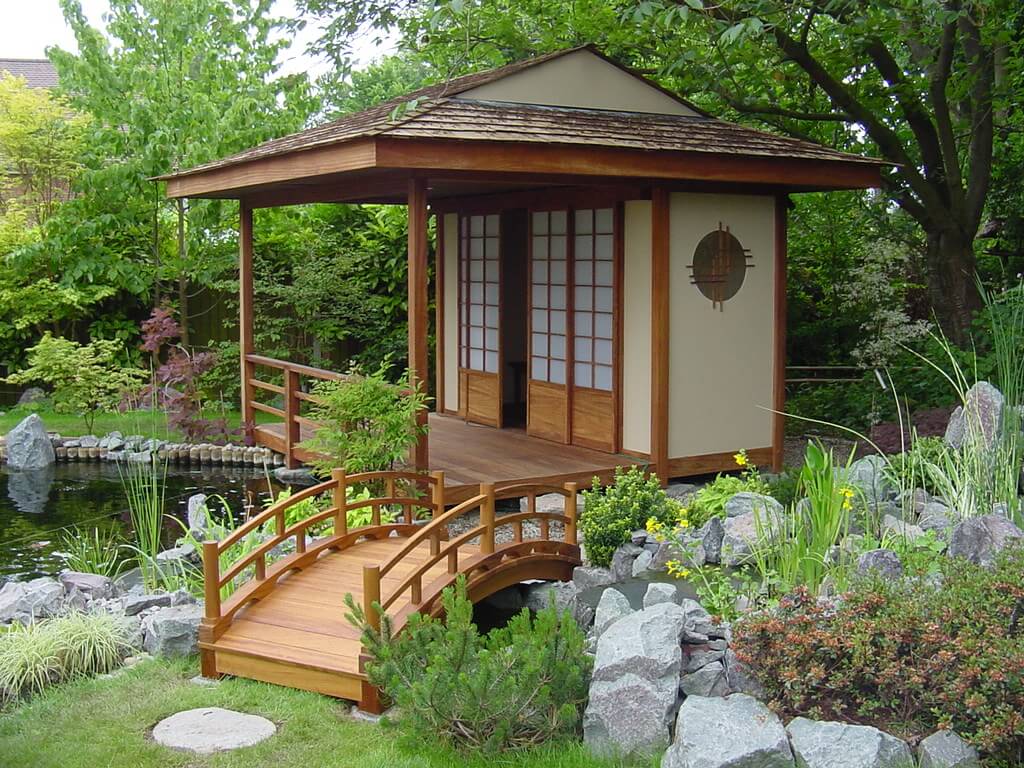Japanese tea house for sale
If you’re interested in owning a Japanese tea house, there are several factors to consider before making a purchase. Here’s some information about buying a Japanese tea house:
- Location: The location of the tea house is one of the most important factors to consider. You’ll want to find a location that is easily accessible for customers and has a suitable atmosphere for a tea house, such as a quiet garden or natural setting.
- Size: The size of the tea house will depend on your budget and the number of customers you expect to serve. A smaller tea house may be more affordable and easier to maintain, but may not be able to accommodate larger groups.
- Condition: When buying a tea house, it’s important to carefully inspect the condition of the building and surrounding property. Look for any signs of damage or wear and tear that may require repairs or renovations.
- Style: Japanese tea houses come in a variety of styles, from traditional rustic structures to more modern designs. Consider which style will best suit your preferences and the surrounding area.
- Price: The cost of a Japanese tea house can vary widely depending on factors such as location, size, and condition. Be prepared to invest a significant amount of money in the purchase of a tea house, and factor in ongoing maintenance and upkeep costs.
- Permits and regulations: Depending on the location of the tea house, you may need to obtain permits or comply with regulations such as zoning laws, building codes, and health and safety requirements.
Overall, buying a Japanese tea house can be a rewarding investment for those interested in Japanese culture and traditional tea ceremonies. However, it’s important to carefully consider all the factors involved and conduct thorough research before making a purchase.
Japanese tea House Shed for sale
If you’re interested in purchasing a Japanese tea house shed, there are several factors to consider before making a purchase. Here are some details to keep in mind:
- Size: Tea house sheds come in different sizes, from small structures that can accommodate a few people to larger structures that can host events or gatherings. Consider the size that will best fit your needs and the available space on your property.
- Material: Tea house sheds can be made from a variety of materials, including wood, metal, or composite materials. Choose a material that will be durable and weather-resistant.
- Style: Tea house sheds come in a variety of styles, from traditional Japanese designs to more modern styles. Choose a style that complements the overall design aesthetic of your property.
- Price: The cost of a tea house shed can vary widely depending on factors such as size, material, and style. Be prepared to invest a significant amount of money in the purchase of a tea house shed, and factor in any additional costs such as installation or landscaping.
- Permits and regulations: Depending on your location, you may need to obtain permits or comply with local regulations such as building codes or zoning laws.
Overall, purchasing a Japanese tea house shed can be a great way to create a serene and relaxing space on your property. Be sure to carefully consider all the factors involved and conduct thorough research before making a purchase to ensure that the shed meets your needs and is a sound investment.
Japanese Tea House by Bruce Bley
Japanese Tea House by Bruce Bley is a unique and beautiful tea house designed by architect Bruce Bley. The tea house is located in the backyard of his own home in upstate New York and was inspired by traditional Japanese tea houses.
The tea house is a small and intimate space that is designed to create a sense of peace and tranquility. It features a simple and minimalist design with a low profile and clean lines. The structure is made of natural materials such as cedar and bamboo, and the interior is finished with tatami mats, shoji screens, and traditional Japanese lanterns.
One of the unique features of the tea house is its movable wall system. The walls are made of panels that can be slid open or closed depending on the weather or the desired level of privacy. The tea house also has a small outdoor garden with a water feature, which is designed to create a serene and calming atmosphere.
The tea house is not only a beautiful space but also serves as a functional tea room. It is designed to accommodate traditional Japanese tea ceremonies and can seat up to six guests. The tea house is equipped with a small kitchenette and tea preparation area, as well as traditional tea ceremony tools such as tea bowls, tea whisks, and bamboo ladles.
Japanese Tea House by Bruce Bley is a stunning example of modern Japanese architecture that blends traditional design elements with contemporary materials and techniques. It is a testament to the beauty and simplicity of Japanese tea culture, and a unique space for meditation, relaxation, and connection with nature.

